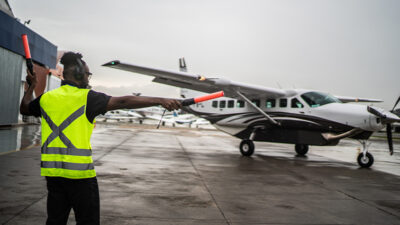SM4 Safety Articles & Resources

Part 108: The Next Step in BVLOS Integration and Drone Innovation
As the drone industry awaits the Federal Aviation Administration’s (FAA) forthcoming Part 108 regulations, the landscape of Beyond Visual Line of Sight (BVLOS) operations stands on the brink of transformation. These anticipated rules aim to standardize BVLOS flights, enabling more complex and expansive drone missions across various sectors.

Navigating Geopolitical Uncertainty Using Business Aviation
Bigger business jets mean bigger fuel tanks, longer trips, more border crossings, and bigger wallets! With an equipment upgrade also comes the requirement for a knowledge upgrade.

Giving the Hazard Log the Attention It Deserves
Safety risk profile. Hazard log. Hazard risk register. Whatever you call it internally, one thing is clear: It is a fundamental requirement in your safety management system.

Leadership, Accountability and Your Organization’s Risk Profile
Recent media attention has cast light on the unusual number of aviation system-related accidents, incidents and near-misses that have plagued our industry over the past several months.

Aviation Safety—Grounded!
When we talk about aviation safety, our attention often goes to aircraft operational concerns. They are important, but by no means do they represent all the risks in a flight department. So, what’s “the rest of the story”?

Mitigating Risk – Amidst the Chaos
There have been more high-profile aviation accidents in the last few months than in the last few decades. As we mourn those we have lost and aim not to make assumptions before final reports are completed, we must focus, personally and professionally, on assessing the risk of something similar happening within our aviation enterprises.

Data Sharing: The Heartbeat of Safety in the Skies
Flying today is anything but a simple, straightforward path. Pilots have multiple factors to consider for ensuring the safest and most sustainable flight experience.

The Insidious Nature of the Routine
When routine tasks become familiar and are no longer actively assessed for threats, they often are the first link in an error chain that results in a serious mishap. It is natural for crews to become comfortable with seemingly low-risk tasks, allowing complacency and distractions to permeate their focused attention.

Code Red: Planning for the Cyberattack Aftermath
This is an era of rapid change and technological advancement, and although it is challenging, responsible organizations seek to manage and mitigate cyber risks. Insecure systems and uncertain people, added to inadequate contingency plans, create a perfect business continuity storm in the aftermath of a cyberattack.
